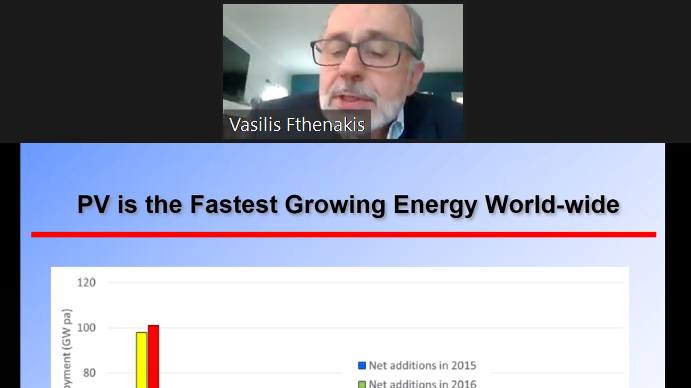Vasilis Fthenakis, one of the world’s foremost experts on solar energy and director at Columbia’s Center for Life Cycle Analysis, delivered a keynote speech at the beginning of November to the online audience of the 7th International Workshop on Lithium, Industrial Minerals and Energy.
“If we are able to integrate renewable energy systems and address the critical global problems for energy, we can then use energy to produce more fresh water from salt water and to improve farming. We can use clean, abundant solar energy to enable hydrogen production and clean the environment,” he said in his opening remarks of the presentation “Life Cycle Analysis of Photovoltaics with Lithium-ion Battery Storage.”
Photovoltaic (PV) power has been the fastest growing energy worldwide, he added, with renewable energy expected to supply 69% of electricity and 35% of total energy needs in the US by 2050. “These high estimations require storage; you need it to get high penetration, and sustainable battery production becomes part of that,” Fthenakis said, noting that Chile has one of the world’s highest reserves of lithium – a key component in lithium-ion (Li-ion) rechargeable batteries.
The solar expert also pointed to similar plans of California and Chile. Whereby the former expects solar and wind to make up 60% of its energy matrix by 2030, the latter plans for a similar weighting by 2035; the biggest increase will be via PV.
Inexpensive solar PV electricity will create new markets for Li-ion batteries in both electric vehicles and stationary energy storage, he said, and assessments of PV plus Li-ion battery systems show that life cycle global warming potential and energy payback times increased 7-30% and are much lower than fossil-fuel alternatives. As such, the benefit of PV displacing thermal electricity is only marginally affected by adding batteries.

